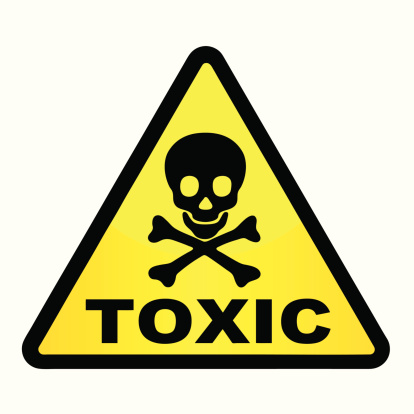The Unexpected Qualities of a Toxic Employee

When it comes to negative employees, managers typically expect individuals who:
- Don’t pull their weight
- Continually gripe about their work
- Get on peers’ and supervisors’ nerves
These hallmarks make toxic workers easy to spot – and extremely difficult to deal with.
But slacking and complaining aren’t the only behaviors negative employees exhibit. Sometimes, toxic behaviors come in the form of “too much of a good thing”:
- Following the rules too strictly. Obviously, rules, policies and procedures provide a framework for conducting business. And the vast majority of the time, employees should follow the rules. On rare occasions, however, common sense dictates that workers bend rules to provide great service, efficiently solve problems or manage crises. While you certainly don’t want employees “going rogue,” they should make practical decisions for the good of your customers and your company.
- Overconfidence. Knowing one’s strengths is an important element of success. But when an employee overestimates their abilities, refuses to acknowledge their weaknesses, or is unable to admit when they’re wrong, confidence becomes hubris (and that’s never good at work).
- Being willing to do ANYTHING to get ahead. Volunteering for extra work, taking credit for one’s success, and presenting ideas to grow the company are all acceptable ways to get ahead at work. But sometimes, employees cross a critical line and become ruthless in their pursuit for money and status. Instead of merely “putting their best foot forward,” these toxic employees step on others’ backs – resorting to rudeness and corruption to get what they want.
Your best defense against these unexpected – yet toxic – qualities?
Ask behavioral questions to spot potential red flags when interviewing, to ensure you don’t hire another problem employee. Here are a few suggestions:
- Ask about dislikes or irritants at work. If the candidate isn’t forthcoming, probe to find out at least three or four things that bother them on the job.
- Ask the candidate to describe the way they handled a tough situation at work. Look for signs that the individual dodges responsibility or accountability, or that they have trouble handling conflicts or problems in a professional manner.
- Ask forced negative questions. Try something like, “Give me two good reasons why I shouldn’t hire you,” or, “Who did you most dislike at your last company – and why?”
How should you handle difficult personalities on the job?
For tips on how to deal with a toxic co-worker, read this earlier post from PrideStaff.
Want to replace a toxic employee – or avoid hiring them in the first place?
PrideStaff’s On Target fulfillment process eliminates the guesswork, chance and inconsistency in staffing – and ensures you receive better quality candidates, each and every time. Contact your local PrideStaff office to learn more.



